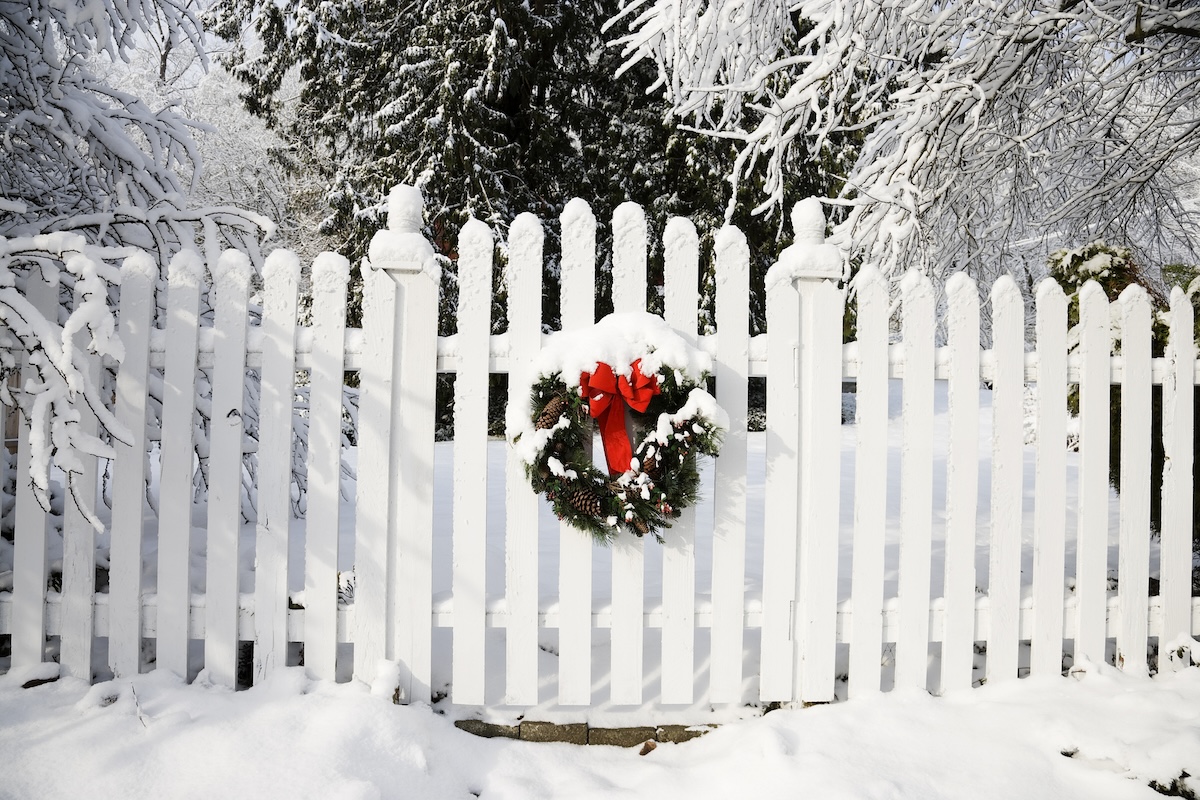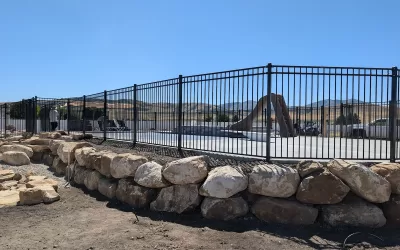Winter in Cache Valley brings beautiful snow-covered landscapes, but it also poses challenges for homeowners, particularly when it comes to maintaining fences. Snow and ice can cause significant damage if proper precautions are not taken. At High & Tight Fencing, a trusted fencing company in Cache Valley, we want to ensure that your fence remains sturdy and functional throughout the winter months. Here are some insights into how snow and ice can impact your fence and tips for effective fence winter maintenance.
How Snow and Ice Affect Different Types of Fences
- Wood Fences
Untreated wood fences can be susceptible to moisture-related damage. We exclusively use high-quality cedar wood, which doesn’t not rot, but can still crack and warp if not properly maintained. Repeated cycles of freezing and thawing can lead to further deterioration, especially in older fences. Additionally, the weight of heavy snow can put stress on the fence, potentially causing it to lean or break.
- Vinyl Fences
Vinyl fences are generally more resistant to moisture, but they are not immune to winter weather damage. Snow and ice buildup on vinyl panels can cause them to crack, particularly when temperatures fluctuate. Additionally, vinyl fences can become brittle in extremely cold conditions, making them more prone to breakage if hit by falling ice or heavy branches.
- Metal Fences
Metal fences, such as steel and chain link, are strong and resilient, but they can still be affected by snow and ice. Ice buildup can cause rust and corrosion, especially if the protective coating is damaged. In regions like Cache Valley, where temperatures drop can significantly, the freeze-thaw cycle can weaken metal fences over time, leading to cracks and potential structural issues.
Tips for Preventing Winter Weather Damage to Your Fence
- Regular Inspection and Maintenance
One of the best ways to protect your fence during the winter is by performing regular maintenance checks throughout the year. Look for signs of damage, such as loose boards, cracks, or rust, and address these issues before winter arrives. Keeping your fence in good condition helps it withstand the harsh effects of snow and ice.
- Trim Overhanging Branches
Heavy snowfall can cause tree branches to snap, and falling branches can do significant damage to your fence. Make sure to trim any overhanging branches near your fence line to prevent them from breaking under the weight of snow and ice and damaging your fence. This simple step can save you from costly repairs.
- Clear Snow Accumulation
After heavy snowfall, take the time to remove snow buildup around your fence. Use a shovel or snow blower to clear snow away from the base of the fence to prevent moisture from seeping into the materials. Be cautious not to apply too much pressure, as this could cause damage, especially to vinyl fences.
- Remove Ice Safely
Ice can be particularly challenging to deal with because of its potential to weigh down and stress your fence. If you notice ice buildup on your fence, avoid hitting it with a heavy object to break it off, as this can cause cracks or dents. Instead, use warm water to melt the ice gently or apply a de-icing solution that is safe for your fence materials.
- Reinforce Weak Points
Before the winter weather hits, inspect your fence for any weak points, such as loose posts or panels. Reinforcing these areas will make your fence more resistant to heavy snow and ice accumulation. Consider installing additional support posts for longer fence sections that may be more vulnerable to winter weather stress.
Winter Weather Fence Maintenance by Material
- Wood Fences: Apply a weatherproof sealant in the fall to protect against moisture damage. Ensure that the wood is painted or stained, as this adds an extra layer of protection. Repair any broken or loose boards before winter to prevent further damage. We recommend Wood Defender for a premium finish that will last.
- Vinyl Fences: Clean your vinyl fence in the fall to remove dirt and debris that could contribute to winter wear. Inspect for cracks and repair any damaged sections, as vinyl can become more brittle in cold temperatures.
- Metal Fences: Check for rust or corrosion and apply a protective coating, like a rust-barrier enamel spray paint to match the fence, to shield against moisture. Tighten any loose bolts or connections and inspect for weak spots that may need reinforcement.
Winter Fence Care in Cache Valley
Winter weather can be harsh on fences, but with proper fence maintenance and preventative care, you can minimize the effects of snow and ice on your fence. At High & Tight Fencing, a premium fencing company in Cache Valley, we offer expert advice and professional services to help you prepare your fence for winter and keep it in top shape all year round. If you’re looking for reliable fence winter maintenance solutions, contact us today to ensure your fence is ready to withstand the toughest conditions.




